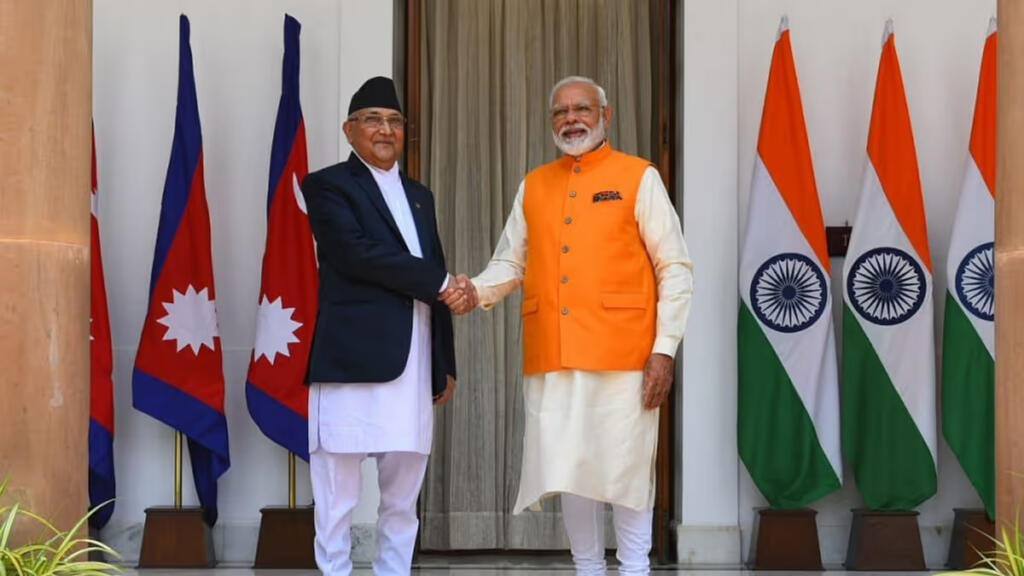KP Sharma Oli has once again taken the helm as Nepal’s prime minister, steering a coalition government. This marks his fourth time in the top leadership role, following his previous terms in 2015, 2018, and a brief stint in 2021. At 72 years old, Oli succeeds Pushpa Kamal Dahal ‘Prachanda,’ who lost a confidence vote in Parliament, triggering this latest political shift in the Himalayan nation.
China’s Growing Influence in Nepal
Oli’s Perceived Pro-China Stance
Oli is often viewed as having a pro-China inclination, which has raised eyebrows both domestically and internationally. This perception stems from his previous policy decisions and public statements that seemed to favor closer ties with Beijing. China’s increasing presence in Nepal has become a significant factor in the country’s political and economic landscape.
Belt and Road Initiative (BRI) Concerns
One of the key issues surrounding Oli’s return to power is Nepal’s potential deeper involvement in China’s Belt and Road Initiative. While Nepal officially joined the BRI in 2017, concrete projects have yet to materialize due to the pending implementation agreement. China has been actively pushing for this agreement to be signed, which could significantly increase its influence in the region.
India’s Apprehensions and Strategic Interests
Border Disputes and Economic Ties
India, Nepal’s southern neighbor, harbors concerns about Oli’s leadership. In the past, Oli has vowed to reclaim land from India that Nepal considers its own, a stance that has strained bilateral relations. Additionally, the severe trade imbalance between the two countries remains a contentious issue. Despite these challenges, Nepal’s reliance on India for trade and transit routes underscores the importance of maintaining a working relationship.
Strategic Importance of Nepal
For India, Nepal holds crucial strategic value in the context of regional geopolitics. The two nations share a border spanning over 1,850 kilometers, touching five Indian states. This geographic proximity, combined with deep-rooted cultural and economic ties, makes Nepal an important partner for India in maintaining its influence in South Asia.
Balancing Act: Nepal’s Foreign Policy Challenges
Neutral Foreign Policy Claims
Oli’s party, the Communist Party of Nepal – Unified Marxist Leninist (CPN-UML), has emphasized a “neutral” foreign policy approach. They stress the importance of maintaining good relations with both China and India, a delicate balancing act given the competing interests of these regional powers.
Transit and Transport Agreement with China
A significant move during Oli’s previous term was the signing of the Transit and Transport Agreement with China in 2016. This agreement gives Nepal access to Chinese ports, potentially reducing its heavy dependence on India during times of economic blockades or political tensions.
Domestic Political Dynamics in Nepal
Coalition Formation and Power-Sharing
Oli’s return to power comes through a coalition with the Nepali Congress and other smaller parties. This arrangement includes a power-sharing agreement, with Oli expected to yield the prime minister’s position to Sher Bahadur Deuba later in the term. Such coalitions are common in Nepal’s fractious political landscape but often lead to instability and policy paralysis.
Government Composition and Challenges
The new cabinet includes ministers from various coalition partners, reflecting the diverse political spectrum of Nepal. This coalition structure may influence policy decisions and governance in the coming months, potentially leading to compromises and delays in decision-making.
China’s Economic Footprint in Nepal
Infrastructure Projects and Investments
China has been increasingly active in Nepal, proposing and funding various infrastructure projects. These include hydropower plants, roads, and potentially a cross-border railway. While these investments are welcomed by many in Nepal for their potential to boost economic development, they also raise concerns about increasing debt and dependency on China.
Cultural and Educational Ties
Beyond economic investments, China has also been strengthening its soft power in Nepal through cultural exchanges, language programs, and educational opportunities for Nepali students. This multi-faceted approach aims to create long-term bonds between the two countries.
Implications for Regional Dynamics
Trilateral Cooperation Possibilities
Despite the apparent competition between India and China in Nepal, there have been discussions about potential trilateral cooperation. This could involve joint projects that benefit all three countries, although progress on this front has been limited.
Nepal’s Balancing Strategy
For Nepal, maintaining a balance between its two powerful neighbors is crucial for its sovereignty and economic development. Oli’s government will need to navigate these complex relationships carefully to avoid alienating either partner while maximizing benefits for Nepal.
Conclusion: Nepal’s Path Forward
As Oli begins his fourth term as prime minister, Nepal faces the challenge of balancing its relationships with China and India while addressing pressing domestic issues. The success of this new government will likely depend on its ability to navigate these complex regional dynamics, attract investments, and improve the living standards of Nepali citizens. With China’s influence growing and India’s historical ties remaining strong, Nepal’s political leadership must craft a foreign policy that safeguards national interests while fostering regional cooperation.
ALSO READ: From Probation to Probe: IAS Officer Pooja Khedkar’s Controversial Journey
